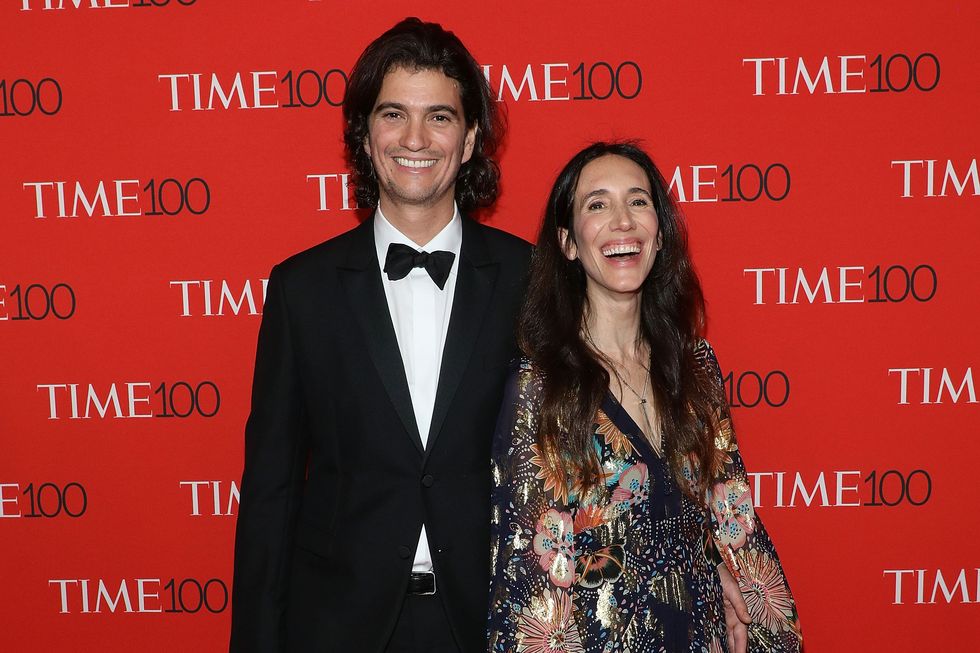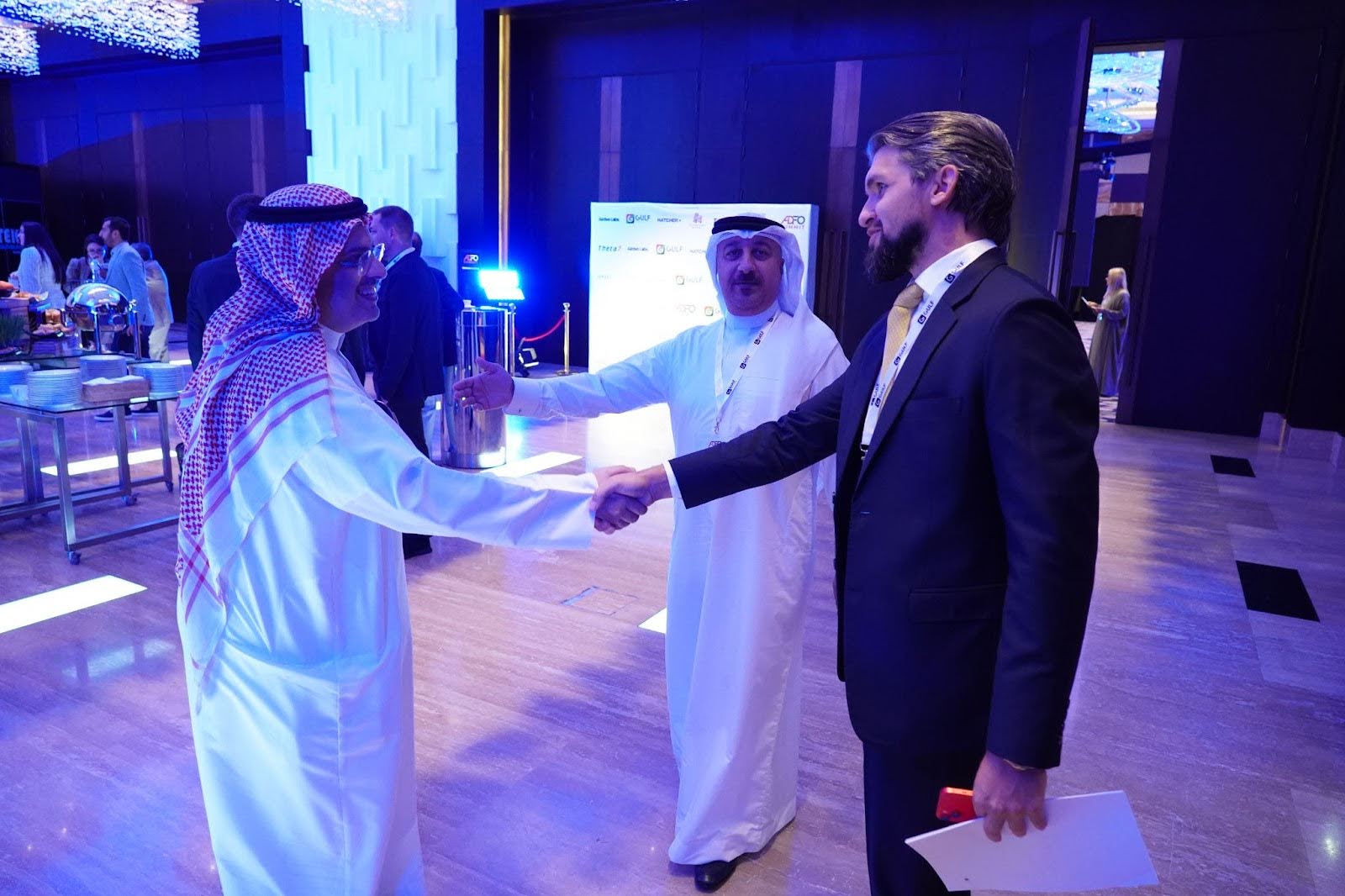For this exclusive article I interviewed Andres Senkovs who is a co-partner at Magnum Estate, a leading real estate developer in Indonesia.
Magnum Estate is a prominent property developer based in Bali, dedicated to crafting luxurious and innovative living spaces on the island. Magnum Estate aims to create dream homes that reflect modern elegance, the essence of tropical living and local culture.
Anna Stukkert: As Indonesia’s famous developer, tell us how did the trend for Bali come about?
Andres Senkovs: Let’s break down the answer into two parts.
If we’re talking about the tourism side of things, it started shaping up about 10 years ago, and now Bali is the trendiest, most Instagrammable place in the world. Bali boasts so many attractions that every blogger wants to showcase them, and everyone else wants to be there too. You’ve got everything here: stunning nature, rich culture, a unique atmosphere, cool spots, beaches, and volcanoes. Honestly, a day isn’t enough to cover everything cool about Bali.
Now, if we shift gears to the investment trend, we played a big role in making it happen. Even before the pandemic, the Bali real estate market was mainly popular with locals building properties for rentals. Foreigners weren’t really in the know. So, we invested time and resources to get them interested. We brought in big real estate companies, organized educational events, conferences, and webinars. Surprisingly, 95% of our clients hadn’t set foot on Bali, and all deals were done remotely. To attract those players, we started rolling out significant investment projects, moving the trend from simple villas to large complexes. Today, Bali’s market is a legit place to invest, and it took us over 4 years to get there.
Anna Stukkert: Does the Bali trend only apply to Asia or is it global?
Andres Senkovs: Bali is totally international. When you’re on the island, you’ll come across way more Europeans, Americans, and Australians than people from Asia. Now, in terms of investment trends, it’s interesting to note that the Asian market makes up around 10-15% of the overall investment volume.
Anna Stukkert: Is owning property in Bali about investing or embracing a lifestyle? And who’s it for and why?
Andres Senkovs: Well, when it comes to Bali, it’s mostly seen as an investment, like 95% of the time. Not many people are snagging a place just to live in; that’s the exception. Usually, people buy property to receive some income and also have their own spot to stay during vacations.
Anna Stukkert: Now, how does Bali’s real estate scene stack up against other places like Dubai, the US, or Europe?
Andres Senkovs: First off, Bali’s market is one of the smaller ones, with high demand but not much to go around. Why? Well, there’s not a ton of land to play with. Take the touristy parts of Bali – they only make up 5% of the whole island, and about 93% of those areas are already built up. Plus, with tourism going strong year-round and the daily rental rates pulling in a whopping 80% occupancy on average, Bali clocks in with a 12% annual return, way more than other places. And here’s the kicker – Bali won’t see a market dip because it won’t get flooded with options. Right now, there’s a serious shortage of good properties.
Anna Stukkert: How safe is it to put your money into Indonesia, considering Bali’s part of the deal?
Andres Senkovs: Right now, Indonesia is probably one of the safest spots globally for investments, thanks to some smart policies. They steer clear of wars, and the economy’s on the upswing – you know the drill.
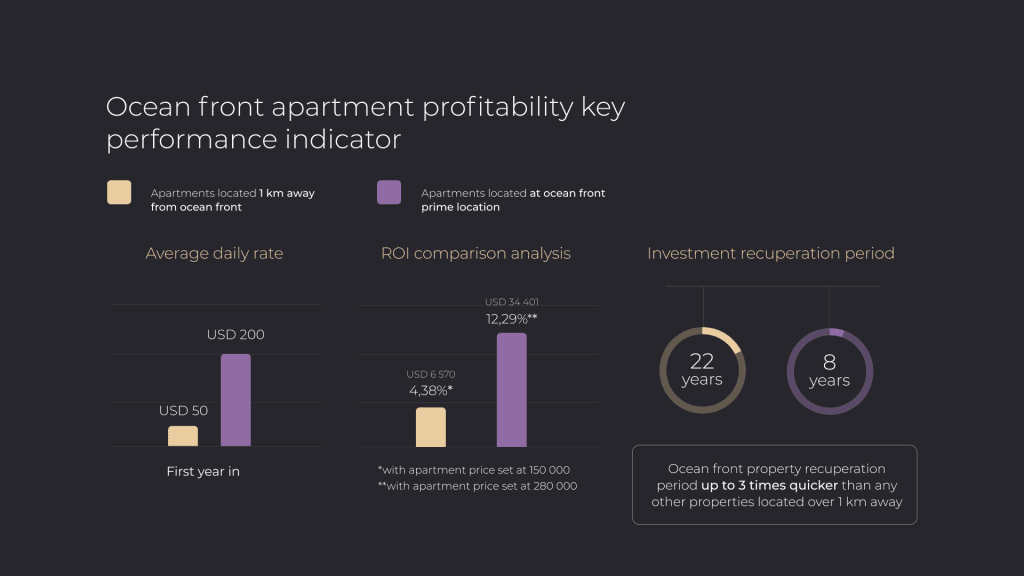
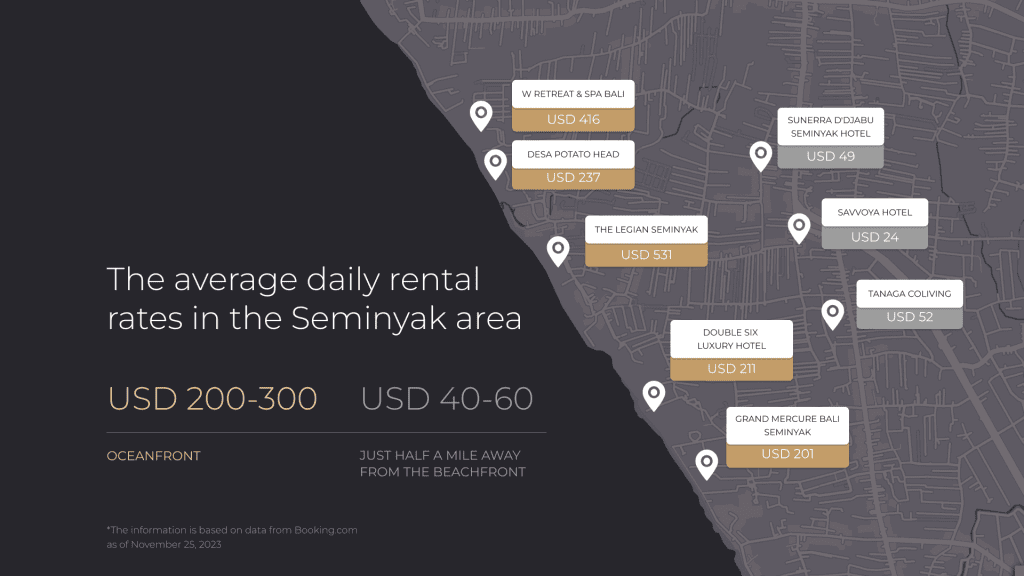
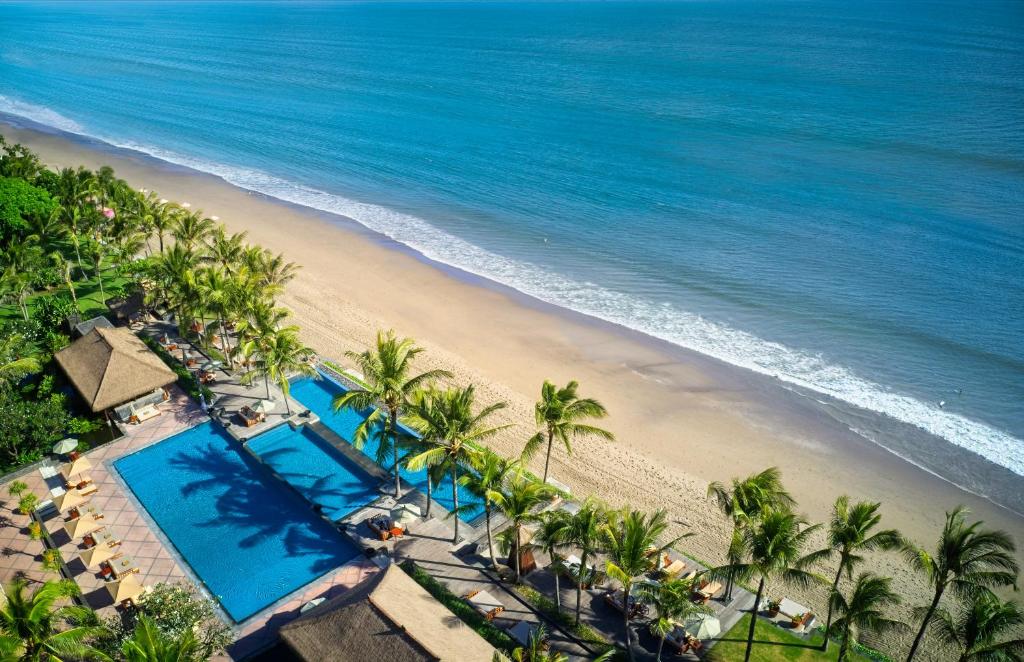
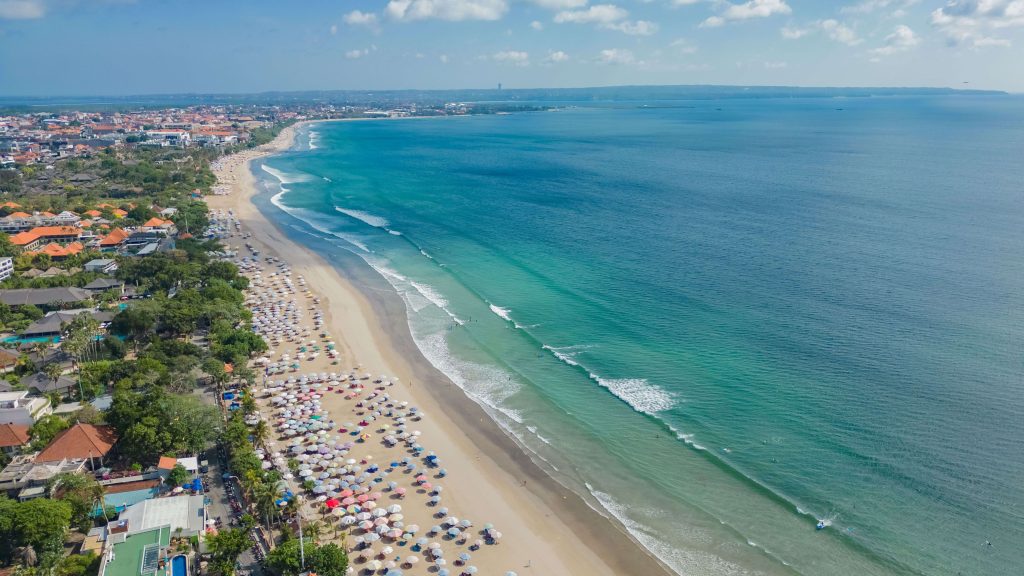
Anna Stukkert: Now, in Bali, you can’t actually have total individual ownership status; it’s leasehold, up to 99 years. Is this a hurdle, and are people ready to buy property under these conditions?
Andres Senkovs: Absolutely spot on. Total ownership? Nope, not happening. It’s all about leasing, maxing out at 99 years. Even locals can’t claim full ownership because land in Bali is like pure gold – nobody’s parting with it. Locals are leasing it to other locals, and the offers for full ownership is less than 1% of all property deals. But here’s the flip – we’re talking about investment properties in resorts. Their game is different – get the client in, make some rent money, see the value go up, and then bounce at the peak to jump into a new project. On average, our clients are in for 3-5 years, making a buck on resale. Trends change, and old properties just don’t cut it like the shiny new complexes. Would you want to shack up in a hotel that’s 25 years old? And don’t forget, Bali’s property ages faster, so it’s cool to think of a 10-year investment plan with a resale move.
Anna Stukkert: I’ve heard that construction standards in Bali aren’t up to par. Is that true?
Andres Senkovs: Absolutely, that’s the real deal. Quality-built villas in Bali are pretty rare. Most of them are showing signs of wear and tear, with mold issues being a common headache. Even hotels are not holding up well, and the root cause is pretty interesting. When tourism hit the scene here, it happened organically, and nobody bothered teaching the local construction crews how to build things right. It’s a big problem because getting quality construction means training these companies on new building standards. But the real snag isn’t just with the companies; it’s the workers who aren’t too keen on retraining and stick to what they know. We’ve learned to tackle this issue by practically becoming foremen for the construction crews on every project. We have a bunch of folks overseeing every step of the construction process. Even big companies find it challenging, and new players jumping in can’t really change the game. They end up settling for the usual construction quality. It’s the projects that are well-built that truly stand out.
Anna Stukkert: Are major developers making their way into Bali? Is there a construction boom looming?
Andres Senkovs: Nope, not even developers from Jakarta, the capital of Indonesia, are diving into Bali. It’s a tough nut to crack for them too, reshaping the system. Large companies entering the market simply don’t have the space; they’d need more time to figure out the local nuances. Bali has next to no land left for high-quality projects. Picture this: the entire coastline in touristy areas is already built up, and anything further from the ocean doesn’t grab much interest. Coming into the market to build just one project doesn’t make sense. Throw in the pricey land, a max height of 4 stories, and it’s clear new developers aren’t too enticed. As for a tourism boom, right now, you can count the number of sizable projects in Bali on two hands, even at its peak. So, no construction boom for Bali at the moment.
Anna Stukkert: What’s currently under development in Bali? What types of real estate are in demand?
Andres Senkovs: In the past, when land prices in Bali were more reasonable, larger villas were all the rage. However, with the escalating cost of land, the trend is now shifting towards townhouses without yards or villas with a compact pool adjacent to the living room, enclosed by a fence. These properties are shrinking in size, especially in tourist areas where available land is scarce. Selling such properties can be a challenge due to their typically short 25-year lease and the need for substantial renovations within a few years. Taking a different approach, we anticipate a forthcoming shortage of high-quality short-term rental properties in Bali, given the aging hotels and a dearth of new construction. To address this gap, we are constructing 5-star complexes to replace these aging hotels, a format that is currently in high demand. For the cost of an average townhouse, individuals can secure a property in a 5-star complex by the ocean, complete with infrastructure and management. Furthermore, reselling such properties is consistently easier compared to villas.
Anna Stukkert: What’s the price range for real estate in Bali?
Andres Senkovs: It varies based on the type and several factors. When it comes to oceanfront villas, prices can range from 5 to 7 million dollars. Contrary to popular belief, acquiring oceanfront property in Bali is far from easy, particularly in tourist areas where the landscape is dominated by hotels and large older villas. In non-tourist regions with beaches unsuitable for swimming, lacking proper roads and infrastructure, such properties seldom attract demand. For properties situated away from the ocean, the average price is around $150,000. However, there’s a catch; these properties typically don’t yield much income if purchased for investment purposes, as maintenance costs can consume all profits. A more viable investment falls within the $250,000 to $500,000 range, offering a balance between affordability and potential returns.
Anna Stukkert: In the past year, what is the greatest business achievement you have achieved?
Andres Senkovs: Our greatest achievement has been successfully launching a largest premium apartment complex project in Bali, that embraced sustainability, innovation, and exclusive design elements. It was a testament to our commitment to redefining luxury living in Bali.
Anna Stukkert: What advice do you wish you had received when you started your business journey, and what do you intend on improving next year in 2024?
Andres Senkovs: We wish we had received advice on establishing more streamlined processes earlier. Moving forward in 2024, we aim to enhance our operational efficiency and focus on sustainable development practices.
Anna Stukkert: Business is all about overcoming obstacles and creating opportunities for growth. What do you see as THE real challenge right now?
Andres Senkovs: The current challenge lies in navigating the evolving landscape of property development regulations and sustainability mandates while maintaining our commitment to delivering premium living spaces in such a beautiful islands. This is not just a property we building, this is our legacy.
Anna Stukkert: What does “success” in the year to come mean to you? It could be on a personal or business level; please share your vision.
Andres Senkovs: In the upcoming year, success to us means achieving a harmonious balance between innovation, sustainability, and exceptional customer satisfaction. We envision a year of meaningful growth, development, and positive community impact in all levels.
Anna Stukkert: In your experience, what tends to be the most underestimated part of running a company? Can you share an example?
Andres Senkovs: The most underestimated aspect often lies in the intricate balance of iterative innovation and retaining the timeless essence of our designs. It’s crucial to uphold modern standards while preserving the allure of local culture and elegance.
Anna Stukkert: Can you share a time when your business faced a significant challenge? How did you navigate through it?
Andres Senkovs: Our company encountered a challenge with regulatory changes impacting our design approach. We navigated through it by fostering proactive communication with stakeholders and adapting our strategies to align with the new guidelines and local traditions.
Anna Stukkert: How has a failure or apparent failure set you up for later success?
Andres Senkovs: Failures have propelled us to consistently seek forward-thinking solutions and refine our development approach. Each setback has provided invaluable lessons that have ultimately facilitated our growth and resilience.
Anna Stukkert: How do you build a resilient team? What qualities do you look for in your team members?
Andres Senkovs: We build a resilient team by fostering a culture of adaptability, continuous learning, and unwavering dedication to our shared vision. Key qualities we seek include creativity, grit, and a passion for excellence.
Anna Stukkert: How do you maintain your personal resilience during tough times?
Andres Senkovs: Personal resilience is maintained through regular self-reflection, seeking inspiration from successful projects around the globe and our company’s successes, and maintaining a healthy work-life balance.
Anna Stukkert: What strategies do you use to manage stress and maintain focus during a crisis?
Andres Senkovs: Effective stress management involves open communication, delegating responsibilities, and employing mindfulness practices to maintain clarity and focus in the face of challenges.
Anna Stukkert: How do you communicate with your team during a crisis?
Andres Senkovs: Clear, frequent, and transparent communication is key. During a crisis, we emphasize regular team meetings, providing updates, and fostering an environment of mutual support and problem-solving.
Anna Stukkert: What’s the most important lesson you’ve learned about leadership in times of crisis?
Andres Senkovs: The most important lesson about leadership in times of crisis is the value of transparent and empathetic communication. Leaders must prioritize open and honest dialogue, acknowledging the challenges at hand while instilling a sense of trust and confidence in their team.
Additionally, displaying genuine empathy and actively listening to the concerns of team members is crucial in fostering resilience and unity during difficult times. It’s essential to provide clear direction, maintain a composed demeanor, and reinforce a shared sense of purpose to guide the team through adversity.
Furthermore, a leader’s ability to remain adaptable and responsive to changing circumstances while demonstrating strength, understanding, and a sense of purpose is fundamental in navigating crises and building a cohesive and resilient team.






